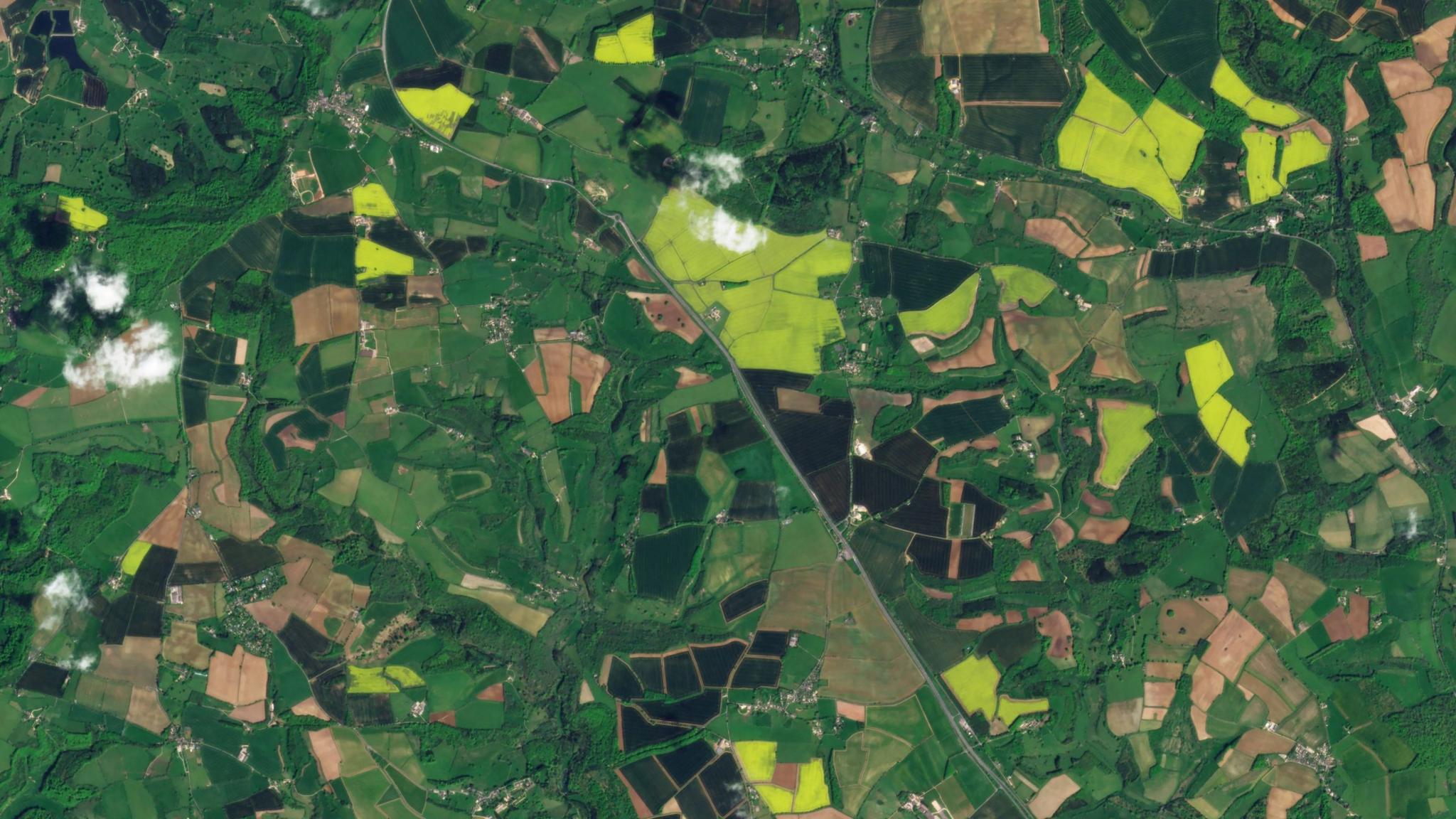Planet Insights Platform Transforms Agricultural Data Management

PlanetScope image of agricultural fields in Gloucestershire, England captured May 7, 2022. © 2022 Planet Labs PBC. All Rights Reserved.
StoriesEach year the Rural Payments Agency (RPA) pays over £2 billion in support of rural farming communities, aiming to ensure a thriving farming and food sector across England. As part of their mission, RPA provides financial payments to farmers, traders, and landowners to help advance the transition towards a sustainable economy.
In order to provide these financial incentives, RPA needed to verify that farming and landowning applicants were in compliance with their recommendations, including integrated pest management, wildlife-friendly farming, nutrient management, and crop rotation. The organization looked to make these verifications in a uniform and replicable way across the country, but at a national-level, this proved to be a challenging task to scale.
Using Planet data and publicly available satellite data, RPA was able to conduct broad area management at a national scale. Their team could go back in time to evaluate when and where farmers and landowners implemented sustainable farming practices. However, they were still faced with the complication of managing vast amounts of diverse data sets across miles of agricultural land.
“The challenges we had managing large data sets were mainly based around the massive amount of satellite data that's being produced and how to store them. The time and compute intensive process requires a lot of additional hardware management resources from our small team,” explained Valentin Louis, Senior Earth Observation Specialist at Rural Payments Agency.
After trying multiple tools to streamline their data analysis process, RPA turned to our Planet Insights Platform, which unifies our core offerings into a single experience to help our customers and partners embed Earth data and analytics into their workflows in order to become more productive and efficient. Planet’s platform offers a user-friendly interface hosting both Planet-derived data and insights and public satellite data feeds, including data sets from Sentinel-2. With this transition, the RPA team was able to reduce time spent on downloading, processing, and distributing their data and insights across their department.
“With Planet Insights Platform, we have all the data in one platform and this allows us to extract the data we need very quickly, whenever we need it. We can go back in time as far as we have the data,” explained Valentin. “Planet Insights Platform made it easy for us to access the data, build models, and scale them up quickly.”
By integrating their workflows into the platform, RPA is now able to assess the impacts of policies and initiatives to make informed decisions for the future. Providing both advanced analytical tools and easily-understood automated insights, Planet’s platform provides an accessible tool for geospatial analysts and novices alike, allowing for the democratization of agricultural data across the whole agency.
"We are planning to increase our remote monitoring capacity and capabilities by improving our end-to-end workflows, expanding our use cases to monitor more farming practices and land cover changes,” explained Valentin. “We are particularly interested in getting the insights even quicker to the field offices and other end users such as our operational mapping teams that can quickly assess any findings and give feedback to the developers, and to the specialists, and use that information to communicate with the field offices and the farmers properly. We ideally would want to use the data to support farmers better in delivering the environmental outcomes of the new schemes."
Hear more from Valentin in our Rural Payment Agency video:
Today, RPA is working on creating a resilient, data-informed future for England's agricultural industry. By having all of their Earth observation data and insights in one platform, RPA has started to unlock the full potential of their agricultural data. They are moving faster with their insights, diving deeper into timely archives, and looking broader across their nation to ensure that their sustainable agricultural transition is informed by the most up-to-date insights.

Ready to Get Started
Connect with a member of our Sales team. We'll help you find the right products and pricing for your needs.

